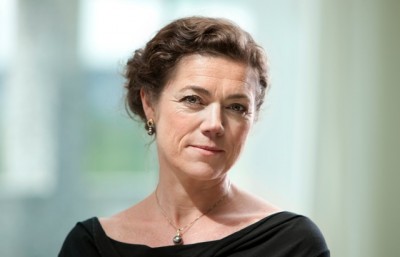Kristin Skogen Lund, newly appointed chief executive of Norway’s largest employers’ organization NHO, warns that Norway risks heading for an economic backlash because of its extremely high cost levels. Lund, in her first interview as NHO’s boss, told newspaper Dagens Næringsliv (DN) that Norwegians can’t expect that their oil-fueled economy will remain strong forever.

Lund took over as head of NHO (Næringslivets Hovedorganisasjon) on November 1 and spent her first official day on the job in an unlikely place: the Dharavi slum area of Mumbai (Bombay), where her former employer and NHO member Telenor has a growing number of subscribers through its Uninor mobile phone unit. NHO is also boosting its cooperation with employer and business organizations in India, to promote trade and investment between India and Norway.
The contrast between Dharavi and Oslo, meanwhile, was extreme, and perhaps offered an important “reality check” for the Norwegian delegation. Skogen Lund stressed that it’s important to remember that Norway wasn’t always a wealthy country. It once was an extremely poor country, with its own slums and impoverished rural areas that prompted hundreds of thousands of Norwegian economic refugees to seek a better life elsewhere, mostly in the US.
“I have studied economic history myself, and all countries and superpowers that have enjoyed boom times have also gone into decline again,” Skogen Lund told DN. “The fact is that no country has an eternal upturn.”
Costs hurt competitive ability
Norway’s economy has been on a long roll for years, with low unemployment and strong growth as oil revenues pour into state coffers. A string of various governments has also taken care not to spend too much of the country’s oil wealth, for fear of overheating the economy, and has been disciplined enough to build up what now ranks as one of the world’s largest sovereign wealth funds that will be used to fund future pension demands.
Skogen Lund nonetheless points out that even though Norway is now a wealthy and successful country, it needs to nurture more education and knowledge and pay more attention to value creation and productivity.
Norway, she said, “has developed a much higher cost level than our trading partners,” noting that costs on average are 54 percent higher in Norway than in countries it must compete with, and more than 30 percent higher than its Nordic neighbours, which also have developed the social welfare systems that make it expensive for employers to do business. Norway’s system, along with various political and protectionist policies, makes it one of the most expensive countries in the world.
‘Extraordinary situation’ now
Skogen Lund worries that Norway still gets “good prices for what we make and export,” while imports have become “very cheap.” Her point, she told DN, and what she claims is often forgotten, “is that this is an extraordinary situation that can suddenly change.” Prices for Norway’s exports can fall, while import prices can rise. “This is not a sustainable situation over time,” she told DN.
She also claimed that Norway has high pay levels that have been defended because of the “extraordinary” situation. “Sooner or later, this will have to be corrected,” said Skogen Lund, who earns NOK 3.1 million (USD 540,000) herself in her new job. “We need to rein in wage growth in Norway, and improve productivity.”
NHO bills itself as an organization that’s politically neutral, unlike its trade union federation counterpart LO in, for example, wage negotiations. LO is solidly aligned with the Labour Party while NHO claims it has no allegiance to the Conservative Party or other borgerlige (non-socialist) parties.
Skogen Lund noted, however, that the platforms of the non-socialist parties like the Conservatives in Parliament “look promising” for business. NHO seems encouraged by their proposals to remove taxes on working capital and inheritance, for example, and promote more employment flexibility.
Views and News from Norway/Nina Berglund
Please support our news service. Readers in Norway can use our donor account. Our international readers can click on our “Donate” button:

